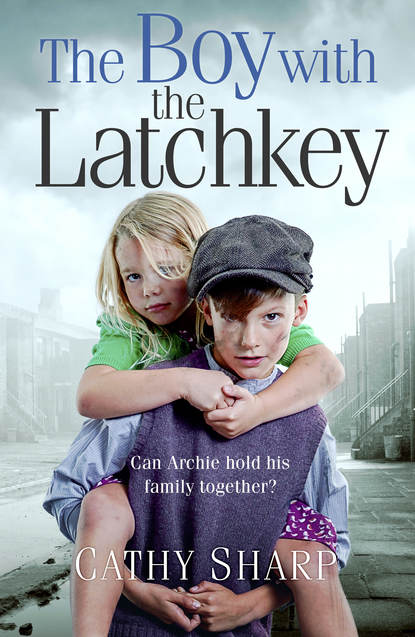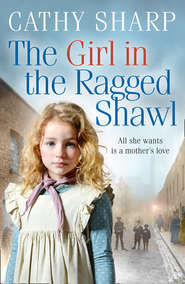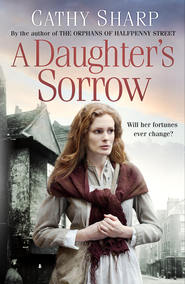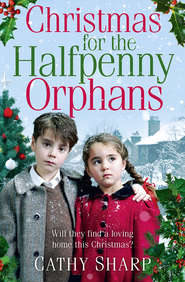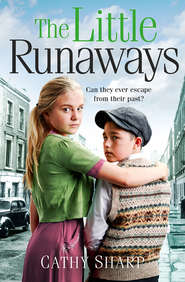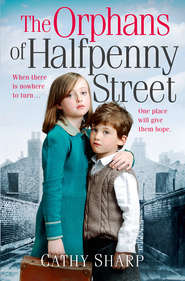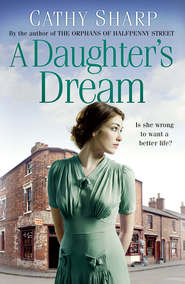По всем вопросам обращайтесь на: info@litportal.ru
(©) 2003-2024.
✖
The Boy with the Latch Key
Автор
Год написания книги
2019
Настройки чтения
Размер шрифта
Высота строк
Поля
‘Some people buy new clothes and then sell the ones their kids have grown out of,’ Sandra had told Archie when she’d bought him his first pair of long trousers the previous Christmas. ‘These have hardly been worn, love. I wanted to buy new, but I just couldn’t manage it – even with the money you earned from delivering papers.’
‘They’re all right, Mum,’ Archie had smiled at her. ‘At least they’re long trousers and people won’t think I’m still a kid.’
‘I’m going to save up for some new ones for your birthday next year,’ she’d promised. ‘I did knit you a new jumper …’
‘It’s great,’ Archie said, because the stripes were his school colours, which meant he could probably get away with wearing it there. The uniform was supposed to be grey trousers and a navy pullover or blazer and a white shirt. Archie’s shirts were frayed at the cuffs but he pulled them up inside his sweater and hoped that no one noticed.
He was still investigating the contents of the pantry when his sister returned clutching her comic and a tube of wine gums.
‘Hey, I said you could have a comic, not spend all of it,’ Archie said.
‘I’m hungry,’ June said as she dragged her coat off and flopped down on the old sofa.
‘What do you want – fried bacon and egg, or would you prefer scrambled eggs on toast?’
‘Can I have bacon and egg with toast … in the middle like a sandwich, and I’d like some brown sauce.’
‘What did your last servant die of?’ Archie demanded. ‘Set the table while I get it ready then … and I’m having some cocoa with mine …’
Archie looked at the clock. It was already half past eight in the evening and his mother still hadn’t got back from work. June had gone up to bed and taken her comic to read on the promise that Mum would bring her some more cocoa when she came home.
Having finished the homework he’d been given, Archie eyed the dirty plates, cups and saucepans he’d used to cook their tea. He hated washing up and Mum seldom expected him to do it, but he knew she was going to be really tired when she got in, and he felt guilty. Sighing, he filled a kettle with water and set it on the range to boil; Mum always said you should pour boiling water over the soda and then add the cold, because it got the grease off better. He wished she would buy some of the washing-up powder that made things easier, but she said soda had always been good enough for her. It was because she couldn’t afford newfangled things like washing powder, but it didn’t help him when he was stuck with a chore that he hated.
He remembered the old days when his father was alive. They hadn’t been rich but there had been money for new clothes, good food, trips to the zoo or a Disney film, and birthday presents that weren’t second-hand. He remembered his dad coming home with fish and chips wrapped in newspaper on Saturday lunchtime. Normally, he’d have sweets in his pockets for Archie and June and he’d given them threepence pocket money a week that they could save in their moneyboxes for whatever they wanted. Archie missed those things, but most of all he missed the way his dad smiled and swung him round or tossed him in the air, the games of football they’d played in the park, and the feeling of love in the house. His mother still loved them both, Archie knew that, but she was so tired all the time and so seldom around.
He listened to Dick Barton and then switched the radio off because it was music he didn’t like much. Sometimes, he listened to country music but mostly he liked Rock ’n’ Roll, because it was exciting. It made him realise that he was a teenager, and teenagers were different these days. The old dark days after the war had begun to change and life was easier, even here in the East End, though Archie’s family couldn’t afford to do all the things that other families did – those that had both a mother and father working were better off these days. The newspapers talked about a time of new prosperity and opportunities for everyone, and even here in the scruffy East End things were improving in some places. One of his best friends, Jamie Rawlings, had told him only that morning that his dad was getting a car soon.
‘We’ll be going to the sea on Sundays in the summer,’ he’d told Archie. ‘I’ll ask Dad if he’ll let you come with us. I’m sure he will, because he likes you – he says you’ve got a raw deal …’
Archie hadn’t liked the idea that his friends pitied him. His mother did what she could for him and June, and he wouldn’t have changed her for the world. He just wished things could be as they were when his dad was alive.
Glancing at the clock again, Archie saw it was half past nine; it wasn’t like Mum to be this late. He hoped she hadn’t had an accident! A cold shiver went right through him as he remembered the terrible day his father had been killed. Mum had cried for days and so had he. June had wept too, but she hadn’t really understood, and she didn’t remember Dad the way Archie did.
Sighing, he decided to make their suppertime cocoa and take one up to June before he went to bed. She might be asleep, but she was probably still reading that comic …
Archie felt the panic surge as he realised that his mother hadn’t been in all night. Her bed was just the same; everything was exactly as he’d left it in the kitchen, all the plates and cups on the scrubbed pine table, because he hadn’t bothered to put them back on the painted dresser at the end of the room. Besides, he knew that Mum wouldn’t come home and not let him know. She wasn’t the sort to just stay out all night. Archie’s mum didn’t go with men. He knew for certain she wasn’t like that, and he trusted her implicitly, therefore, something had happened. She must have had an accident …
Archie felt sick with apprehension as he chivvied June into getting ready for school. She moaned and whined and kept asking where Mum was. He told her that Mum had had to go out and been back very late.
‘It’s not fair,’ June said and tears rolled down her cheeks. ‘I want her – why isn’t she here? Mimi’s mum doesn’t work all hours like ours …’
‘She has a husband to help her. Mum has to pay the rent on this dump and buy the food and clothes, everything. She can’t help it, June. Come on and get ready. I’m going to take you to school …’
‘What about my dinner money?’
‘Didn’t you pay that yesterday?’
‘Mum said she would give it to me and then she forgot. If I don’t pay today I shan’t get any dinner …’
‘I’ll see if there’s any in the pot.’ Archie looked in the old silver-plated teapot that had belonged to Mum’s granny and found there was just ten shillings. ‘How much is it for this week?’
‘Three ninepences,’ June said and frowned, her tongue coming out of the corner of her mouth. ‘I don’t know how much that is …’
‘It is two shillings and three pennies,’ her brother said. ‘Blimey, June, you ought to know how to add that much up.’
‘I can add up if I’ve got a pencil and paper. I do it on my fingers and write it down.’
Archie had too much on his mind to argue with her. Once he had June in school, he was going to look for Mum. He wasn’t sure where to start, but thought perhaps the best place would be the biscuit factory. If she’d had an accident they would probably know.
June lagged behind all the way to school. He practically had to push her in the gate and made her promise to wait for him after school.
‘I’ll walk you home so just wait in the playground until I get here.’
June reluctantly promised and ran off to join Mimi and her other friends. Archie sighed. He’d got football today, if only he could get there, but first he had to find Mum …
CHAPTER 2 (#u03c152e8-2afa-5cba-8aba-68f69720a496)
‘Angela, how lovely to see you,’ Sister Beatrice said, welcoming the woman who had been their Administrator at St Saviour’s for several years, and whom she sadly missed. ‘It seems ages since you visited us …’
‘Not for want of trying,’ Angela Adderbury said and smiled. ‘The twins had whooping cough last month, and then I had to pop down and see my father. I told you he hadn’t been well, didn’t I?’ Sister Beatrice nodded. ‘He had a few days in the nursing home and seems much better – and the lady he intends to marry had just taken him in a lovely bowl of fruit.’
‘Your father is getting married again?’
‘Yes, at last. He and Margaret have been friends for years. After my mother divorced him, he waited for a while before asking her, but I think his illness made his mind up for him. It’s happening next month …’
‘Spring is a lovely time for weddings,’ Sister Beatrice said. ‘Are the twins quite well now?’
‘Yes, and into everything,’ Angela said. ‘One day I’m going to get time to organise some more fundraising events for you, but at the moment my hands are full. Mark is always offering to help, but although he plays with them in the garden, he’s not good when they’re screaming and acting up. He lectures them about proper behaviour when all they need is a smack on the bottom and they behave. His intentions are good, but he isn’t really into childcare.’
‘Mark is a busy man, and children need a lot of patience,’ Sister Beatrice said. ‘I do miss your exciting projects, Angela, but I know Mark and your sons must come first.’
‘Things have changed a great deal since we worked together, Sister.’
‘Yes, and I’m not convinced they are entirely for the better. I’m sure the government’s intentions were good when they brought us all under the state umbrella, but an institution is only as good as those that run it.’ She paused for thought, and then, ‘It sometimes seems to me that all they’ve given us is miles of red tape. Naturally, we must abide by the government’s new rules, but St Saviour’s was always run with the same principles of love and care as the law provides. We have never given our children cold showers or sent them to bed hungry night after night, or treated them as if they were prisoners in a place of correction. I know that in the past many orphanages did these things, but I should never have been a party to such practices …’
‘Nor I,’ Angela agreed, ‘but St Saviour’s was always the gold-standard and the government needed to protect children from the harsh acts of those less caring than you and your staff, Sister Beatrice.’
‘Perhaps they ought to remember that when they descend on us for an inspection with scarcely an hour’s warning. So far we’ve had nothing but praise for our care, though they criticise the state of the toilets sometimes, because we’ve had a leak no one seems to be able to fix. They warned us last time that water on cloakroom floors can make them slippery. As if we needed to be told! I have no patience with all this mealy-mouthed nonsense!’
Her disapproval when speaking of the state supervision was obvious, but since the Children’s Act some years earlier the Children’s Department was taking over more and more and dictated a great many rules and regulations, against which Sister Beatrice had railed bitterly for some time. She, like everyone else, had grown used to the fact that they had to defer to the Children’s Department, who had taken over the new wing for their own purposes, and although Sister Beatrice was given a free hand with the day-to-day running she now had to report anything of importance to the Superintendent next door – a young, and in her oft-spoken opinion, pert woman who was far too inexperienced for the post.
‘Well, I’ll find time to organise a dance this summer, I promise – and one day soon the twins will be back at school. Mark says he doesn’t mind looking after them sometimes, but he’s so busy and … actually, I find I enjoy looking after them myself. I suppose we could employ someone to help but just for a while I want to be a full-time mother and wife. I have left them with a friend today; Janni is fond of them and always enjoys having them for a few hours, but I’ll go back on the evening train, because I hate leaving them for too long.’
‘I think you’re entirely right,’ Sister Beatrice said. ‘Nothing is more important in my opinion. Have you seen Nan at all?’
‘Not since her wedding to Eddie I’m ashamed to say,’ Angela admitted. ‘I sent her a birthday card and we always exchange Christmas cards, but I must try and see her while I’m in town for a couple of days.’
‘I know she would be delighted to see you,’ Sister Beatrice said. ‘Nan visits me every week, to have a chat and a cup of tea. I’m partial to her cakes and she is very good to me.’





